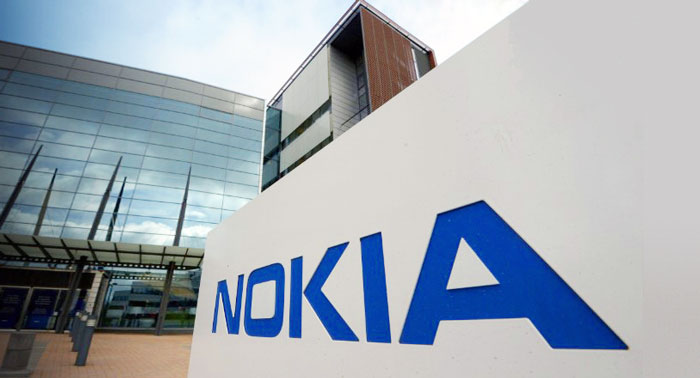BERLIN.- A global panel of software experts on Tuesday unexpectedly rebuffed Microsoft’s bid to get its open document format, Office Open XML, recognized as an international standard, complicating the software maker’s effort to extend its dominance to the burgeoning field of «open» documents.
Following five months of electronic balloting, Microsoft failed to meet the two voting criteria to win a designation as an approved standard from the Geneva-based International Organization for Standardization, known as the ISO, and the International Electrotechnical Commission.
The fight over the standard, while technically arcane, is commercially important because more and more governments are demanding interchangeable «open» document formats for their vast amounts of records. Currently, the only standardized format available to government purchasers is OpenDocument Format, developed by a consortium led by International Business Machines, which the ISO approved in May 2006.
The timing of the decision may be inopportune for Microsoft, coming two weeks before the European Court of First Instance is to rule on the company’s appeal of the European Commission’s historic 2004 antitrust decision against the Redmond, Washington-based company.
Indeed, the tug of war leading up to the vote was reminiscent of the company’s perpetual squabbles with rivals, with critics saying that Microsoft’s domination of personal computer software gives it an unfair advantage, and the company maintaining that its innovations and technical expertise make for superior products.
More than 90 percent of all digital text documents in the world are on Microsoft formats, according to the consulting firm Gartner. Many national and local governments in Europe and some in the United States are requiring open formats to reduce their reliance on Microsoft. In an open format, the underlying computer code is public, which allows software developers to create new products without paying royalties.
Up until the moment of the final vote tally on Tuesday, even opponents had conceded that Microsoft more than likely won approval after forceful campaigning.
But in hindsight, some critics of the software maker blamed the company’s own aggressive lobbying for a backlash. Of 87 countries that participated, only 69 voted yes or no; 18 of those, or 26 percent of the total, opposed Microsoft’s bid. Under the voting rules, no more than 25 percent of countries could oppose the bid.
Microsoft also failed to win 66 percent of 41 countries on an information technology panel of ISO and IEC members called the Joint Technical Committee 1. Instead, Microsoft won 53 percent from the group, according to the ISO, which does not disclose the votes of individual countries.
In all, 51 countries voted for Microsoft’s standard, 18 voted against and 18 countries abstained.
In an interview, Tom Robertson, Microsoft’s general manager for interoperability and standards, said the 18 countries that opposed Office Open XML indicated they could be persuaded to change their votes if Microsoft altered its 2,500-page proposal.
Under voting rules, Microsoft will meet with the voting members from Feb. 25 to 29 in Geneva to attempt to iron out differences.
«I have seen most of these comments and these are comments which I think can and will be addressed in the second part of this process,» Robertson said. «I am more than confident that we will be able to obtain a standards designation for Office Open XML.»
One opponent of Microsoft’s bid said its lobbying – carried out in the voting countries and often pressed by local Microsoft executives – had backfired on the U.S. software maker.
«I think many countries simply resisted what they considered undue pressure from Microsoft,» said Pieter Hintjens, president of the Foundation for a Free Information Infrastructure, a Brussels-based group that opposed Microsoft’s request. «In Europe, our standards processes are sophisticated and Microsoft simply lobbied too hard.»
Hintjens said Microsoft would have a hard time winning over countries that opposed its standards bid because to do so, Microsoft would be forced to officially put into the public domain the coding for many of its proprietary document formats that already dominate the global market.
«I think they are going to stick to their strategy, which is to try to simply get companies to turn their ‘no’ votes into ‘yes’ votes,» Hintjens said. «But I don’t think it is going to work.»
Robertson defended the Office Open XML format and predicted its eventual adoption by standards organizations.
«Open XML is already widely available and is being used by Apple and Novell,» he said. «It is in the Palm operating system, and in the Java and Linux operating environments. Not only is it easy to work with, there are no intellectual property concerns to do so.»
A member of an advisory panel that voted on the standards issue in Malaysia, who declined to be identified, said Microsoft’s lobbying in the country was unprecedented and reached into high levels of government.
Although Malaysia’s Industry Standards Committee on Information Technology decided to vote against Microsoft’s proposed standard, the Malaysian government overruled the panel and abstained in the end.
Robertson said Microsoft actively sought to persuade voters of the merits of Office Open XML, just as IBM lobbied against it. «Many countries have taken part in this vote, including countries that supported us and others that wanted to see things addressed in specifications,» Robertson said.
In Ireland, the National Standards Authority said it voted against Microsoft’s request, citing unspecified «technical issues» with the proposed standard. But if the issues were satisfactorily addressed, the Irish voting body said, it would vote for approval.
Fuente: International Herald Tribune
















